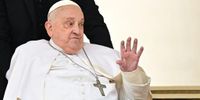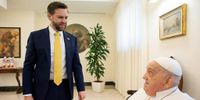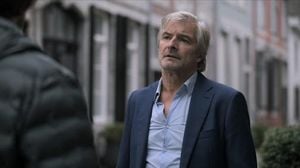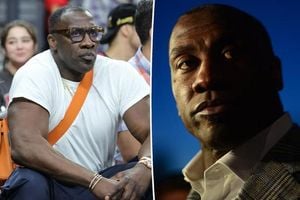Pope Francis, the 88-year-old leader of the Roman Catholic Church, passed away on Easter Monday, April 21, 2025, at his residence in the Vatican's Casa Santa Marta. His death, announced by the Vatican at 7:35 AM, has sent shockwaves around the globe, particularly as it came less than 24 hours after a meeting with U.S. Vice President JD Vance. This timing has sparked a flurry of commentary online, with some drawing eerie parallels to the death of Queen Elizabeth II, who passed away shortly after meeting former Prime Minister Liz Truss.
In the wake of the Pope's death, Vance expressed his condolences on social media, stating, "I just learned of the passing of Pope Francis. My heart goes out to the millions of Christians all over the world who loved him. I was happy to see him yesterday, though he was obviously very ill." Vance's comments have not been received well by some, leading to a wave of criticism and dark humor suggesting a curse associated with his presence. One social media user quipped, "Liz Truss killed The Queen. JD Vance killed the Pope. Can we just stop these people hanging out with the elderly?"
The meeting between Pope Francis and JD Vance took place on Sunday, April 20, 2025, and was characterized by the Vatican as cordial, despite the Pope's obvious health struggles. The Pope had been battling double pneumonia, which ultimately contributed to his demise. Interestingly, the Pope had previously skipped an official meeting with Vance, delegating the responsibility to his deputy, which some have interpreted as a significant gesture given the political tensions surrounding Vance.
During their meeting, the Vatican noted that there was a discussion on various international issues, including the plight of migrants, refugees, and prisoners, as well as the ongoing conflicts in war-torn regions. The statement from the Vatican emphasized the importance of maintaining good bilateral relations between the Holy See and the United States, focusing on the protection of freedom of religion and conscience.
Critics of Vance have taken to social media to voice their opinions, with one remarking, "Pope Francis really met JD Vance then died instantly just like how the Queen met Liz Truss then croaked the day after. Right-wingers really are demons!!!" This commentary reflects a broader sentiment among some that Vance's political affiliations and actions may have had a negative impact on the Pope's legacy.
Pope Francis was a historic figure in many respects. He was the first pontiff from Latin America and the first Jesuit pope, known for his progressive stance on various social issues, including his openness towards LGBTQ+ individuals. His leadership was marked by a commitment to social justice, and he often spoke out on issues affecting the marginalized and impoverished.
Despite the controversies that surrounded his papacy, including criticisms of the Trump administration, Pope Francis remained a significant voice for compassion and humanity in a world often marked by division. His death has prompted reflections on his contributions and the legacy he leaves behind.
As news of the Pope's passing spread, many have taken to social media to express their sorrow and share memories of his impactful homilies. One user recalled a particularly beautiful homily delivered during the early days of the COVID-19 pandemic, highlighting the Pope's ability to connect with people during difficult times. "May God rest his soul," they added, echoing a sentiment felt by many around the world.
In the wake of such a significant loss, discussions have also turned to the future leadership of the Catholic Church. With Pope Francis's passing, many are left wondering who will take on the mantle of leadership and how they will navigate the complex issues facing the Church today.
As the world mourns the loss of Pope Francis, the impact of his meeting with JD Vance will likely continue to be debated. The juxtaposition of their meeting and the Pope's subsequent death raises questions about the influence of political figures on spiritual leaders and the potential ramifications of such encounters.
While some may attribute the Pope's death to mere coincidence, others see a deeper significance in the timing, reflecting the complex interplay between politics and religion. As the Catholic Church enters a new chapter without its beloved leader, the legacy of Pope Francis will undoubtedly continue to shape discussions around faith, compassion, and social justice.
In summation, the passing of Pope Francis marks the end of an era for the Catholic Church and raises important questions about the future of its leadership and mission. His dedication to the service of the Lord and his commitment to the values of the Gospel will be remembered by millions, even as the world grapples with the circumstances surrounding his final days.






